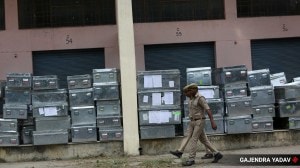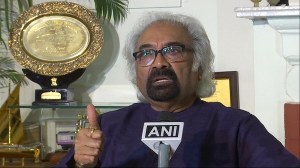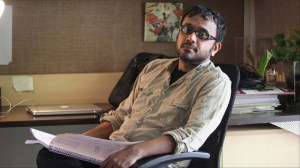- India
- International
In largest district Thane, only 3 of 67 candidates are women
The three women candidates are contesting either as Independents or from a newly floated political party; scenario was different in 2009 elections.
Of the 67 candidates for the Lok Sabha elections in the fray in Thane district, the largest in terms of geographical area, only three are women.
That too, the three women candidates are contesting either as Independents or from a newly floated political party.
Thane district with a population of 11,054,131 comprises four Lok Sabha seats. While the established political parties have a full-fledged women’s cell operating in the district, they have not fielded any women candidates.
The election manifestos of all major political parties speak of women’s empowerment and promises special schemes for women.
“However, when it comes to giving us representation, they step back. Our true representation can happen only if we are given an opportunity to fight this battle,” said Ayesha Kalelkar, a Thane resident and a professor at a local college.

The sheer absence of women in the political discourse of Thane made Asmita Puranik, a 35-year-old commercial pilot and a journalist with a national channel, enter the election fray. Contesting from Kalyan constituency, she decided to enter politics just a month ago.
“Political apathy towards women’s issues made me take this decision.A month ago, a teenage girl was sexually abused by a few local men. When I approached local political leaders seeking help for her and her family, I was turned down. I decided to take it upon me, and hence am contesting this year,” Puranik said.
The other two Independent candidates are Sulochana Sonkamble of Republican Bahujan Sena and Dr. Anita Kolekar of Prabuddha Republican Party, contesting from Kalyan and Bhiwandi respectively.
In 2012, confident of winning over young women, Supriya Sule, sitting MP of Baramati and daughter of Nationalist Congress Party (NCP) chief Sharad Pawar, floated ‘Rashtrawadi Yuvati Congress’, a special party cell for young women. While the cell has been operational in most parts of Maharashtra, including Thane, the party failed to identify a woman as a strong candidate.
“It always boils down to the woman’s spending capability and the political aspirations of her partner. In most cases, only when a certain constituency is reserved for women, do we find a woman candidate,” said Alpita Mistry, an NCP worker.
Another party worker, who did not wish to be named, said, “Sule went on a padyatra across the state to create awareness about the girl child.
Women from villages and Talukas took part in the padyatra. It was a well-planned effort to attract women. But what happened after that?”
“As in local body elections, until 50 per cent seats are reserved for women, political parties will not take women participation seriously,” said Pournima Kabre, a former Ambarnath Municipal Council president and senior Shiv Sena leader.
The scenario was different during the 2009 Lok Sabha elections. Maharashtra Navnirman Sena had pitched its corporator Vaishali Darekar-Rane from Kalyan. Even with an impressive 1.02 lakh votes, Darekar- Rane was replaced this time by Pramod (Raju) Patil.
“Candidates were decided entirely by the party seniors. The party selected the most deserving candidate. Tickets are given strictly on merit, irrespective of the candidates gender,” Darekar-Rane said. The other three women who contested as Independents in the 2009 Lok Sabha polls forfeited their deposits.
sukanya.shetty@expressindia.com
Apr 24: Latest News
- 01
- 02
- 03
- 04
- 05






































